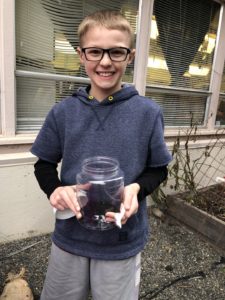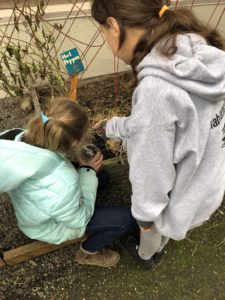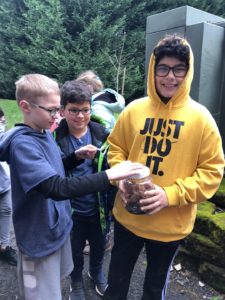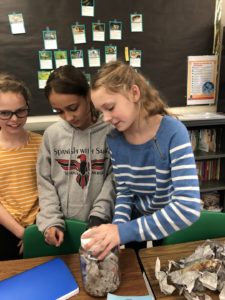History & Geography
This week we continued learning about the Reformation. Our objectives were:
- understand who Martin Luther was, what reforms he wanted and why
- understand the role of the Catholic Church during the Reformation
- compare the reforms made to the Catholic church and the scientific community
- learn about Copernicus’ and Galileo’s role in the Reformation
Mathematics
This week we continued working with Ratios. Our objectives were:
- compare three quantities with ratios
- find the simplest form of 3 quantity ratios
- find equivalent 3 quantity ratios
- continue using CUBES to complete word problems
We also had our first Math Meeting this week! Math Meetings are times for our students to review topics already covered in class. They will reinforce past chapters and fill any gaps in their knowledge. Students will meet with either me or Ms.Laura once a week for these Math Meetings.
Lectura
This week we finished reading the expository text: El viento en acción. Students used evidence from the text to provide answers to comprehension questions as well as express their personal opinions about renewable and non-renewable energy. We had a fantastic discussion! Our objectives included:
- Apply reading comprehension skills and strategies as they read the selection: summarizing, clarifying, asking questions,
- Identify and provide examples of cause and effect situations.
- Understand the spelling patterns of words with z.
- Understand the use of possessive adjectives and possessive pronouns in context.
- Learn how to paraphrase text.
- Use the information gathered, accurately organize it into categories.
- Cross-check different sources of information.
Objectives for persuasive report:
- Gather ideas for their persuasive report.
- Organize their ideas using an outline.
- Draft their persuasive reports.
- Apply writing conventions.
Ciencias
What happens when compost worms interact with organic matter?
Working in groups, students set up a redworm habitat system to study detritivores. They recorded what organic materials went into the habitat with redworms. Students made predictions about what changes they will observe in our habitats over time. We will be observing and recording changes in the worm jar over 1–2 months.
- A system is a collection of interacting parts, ideas, and/or procedures that together define a physical entity or process.
- A subsystem is a small system that is inside a larger system.
- Earth can be described as the interaction of four earth systems: the rocky part (the geosphere), the atmosphere, the water (hydrosphere), and the complexity of living organisms (the biosphere).
- Food webs are subsystems within ecosystems. They describe the transfer of matter and energy within the system.
This week students took home a science book. They are expected to read the book multiple times at home and come prepared on Monday to participate in a book discussion/activity.





